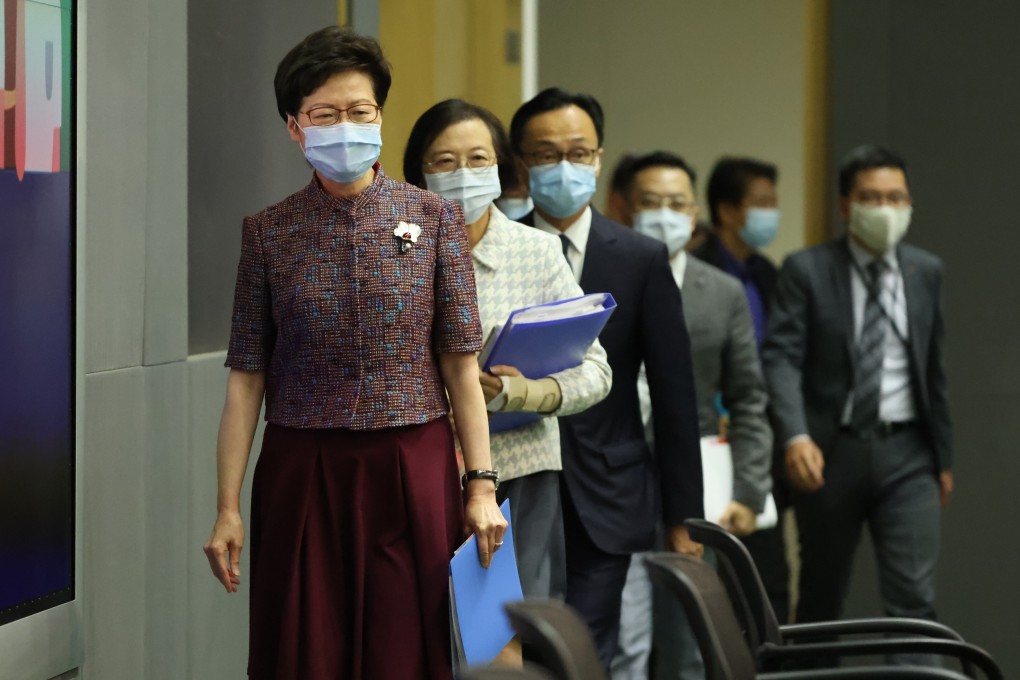Advertisement
Opinion | Hong Kong needs a governance revamp, not just a chief executive change
- The national security law and electoral overhaul will help maintain social stability, but cannot restore public trust in the government
- This will require ensuring officials develop political acumen and are held responsible for mistakes, and that public opinion is taken into account
Reading Time:3 minutes
Why you can trust SCMP
17

Former chief executive Leung Chun-ying seems to have his sights set on contesting the chief executive election next year. He has been outspoken in his criticism of the government on various issues.
Meanwhile, Carrie Lam Cheng Yuet-ngor, our current chief executive, is also very active. She has been trying to highlight her governing ability and increase her popularity by, for example, buying the rights to broadcast the Tokyo Olympics and boosting the city’s vaccination rate.
The keen competition between the two leaders has been a hot topic recently. But this may not be what the central government is happy to see. A hotly contended election does not guarantee progress.
Advertisement
Hong Kong is politically unstable and its government enjoys little public trust. Thus, the central government’s primary concern is to keep the situation under control, so that the Hong Kong government has more space to improve public policies and execute them smoothly, restoring public confidence.
While the Hong Kong government’s performance has been severely criticised, it is questionable if the problems facing the government can be solved just by a change of personnel through the chief executive election. The government faces challenges that are systemic and institutional. A change of personnel does not guarantee good policy implementation. The system of governance itself must change.
Advertisement
Advertisement
Select Voice
Choose your listening speed
Get through articles 2x faster
1.25x
250 WPM
Slow
Average
Fast
1.25x


